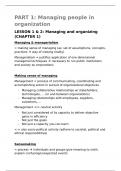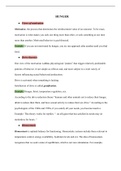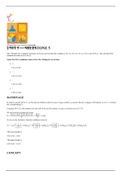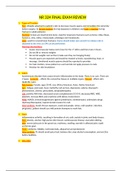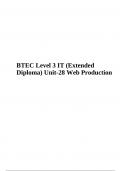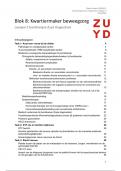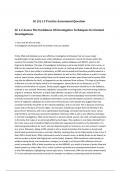Summary
Summary Introduction to Management and Organising 24/25
- Module
- Institution
Complete summary of introduction to management and organising from the year 24/25 for 2nd bachelor Handelsingenieur, TEW and SEW from prof Steffi Weill. The summary includes all lessons from the syllabus.
[Show more]
